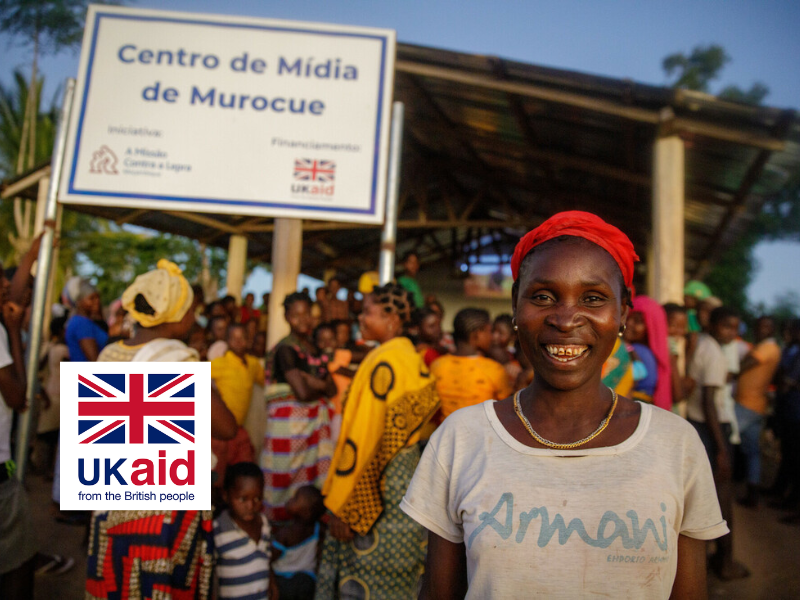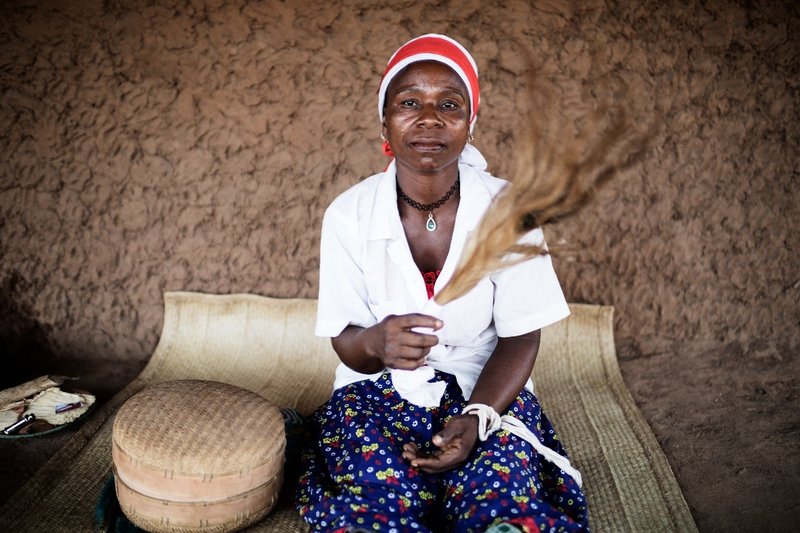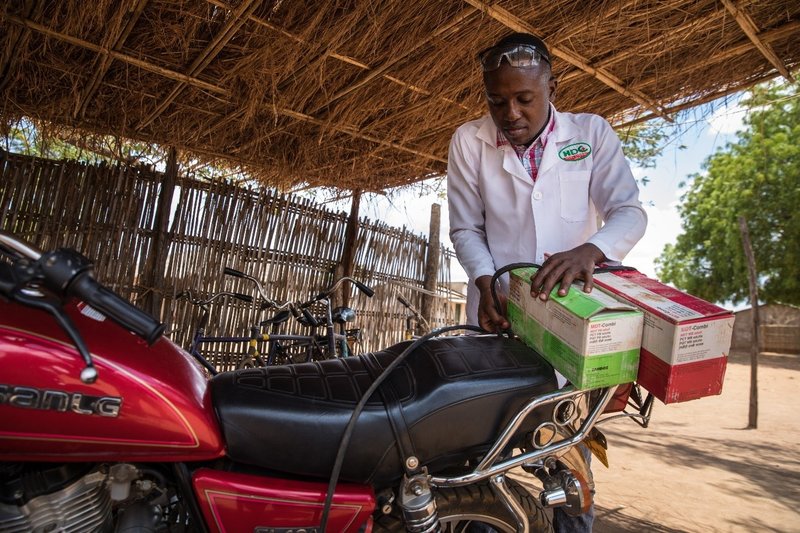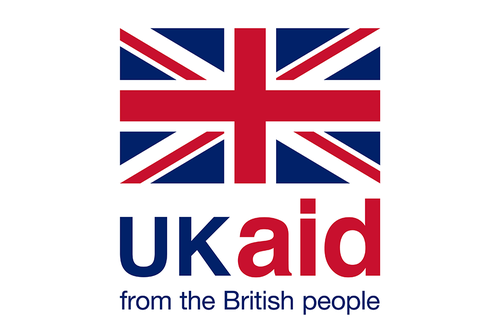Leprosy demystified and thousands cured
Leprosy has been demystified in Northern Mozambique and thousands of people cured.
In many countries today the prejudice surrounding leprosy remains akin to Biblical times. Because of this people hide the early signs for fear of being cast out of their families and communities. Yet in a region of Mozambique blighted by violence, there has been a sea change in attitudes to the disease. Through The Leprosy Mission Great Britain’s Unconditional campaign, the sting has been taken out of leprosy. As a result, 2,955 people have been cured. The Unconditional campaign, which began in 2022, was awarded UK Aid Match funding. This meant that every pound donated up to £2 million, was matched by the UK government. The appeal raised an incredible £4.4 million. As a result, life in some Mozambique's poorest communities has changed beyond recognition.
The campaign has trained 807 people as volunteer Leprosy Champions. These are people from all walks of life. Some are pillars of their community, Priests, Imams, traditional healers and village leaders. Others have had leprosy themselves. They believe no-one should endure the heartache, prejudice and disability that they have suffered. They make it their mission to walk alongside someone going through a similar leprosy journey.
The Leprosy Champions have been trained how to recognise early signs of the disease and refer for treatment. They understand that leprosy is curable and not a curse and share there is nothing to fear with everyone. They are fired up in their quest to get the cure to someone with leprosy symptoms quickly to prevent disability. They are protecting futures and independence with swift action. This nurturing approach has been hugely successful. In fact, 45% (1,334) of all leprosy cured through the Unconditional campaign were referred by Leprosy Champions!

Monihia's leprosy was treated after it was discovered by a volunteer Leprosy Champion. Monihia is pictured outside a Hub of Hope, known locally as a media centre, in Cabo Delgado, Mozambique. Photo: Ricardo Franco
Mother-of-three Monihia was cured of leprosy as a result of this work. In rural communities like hers it is usual to seek medical advice from a traditional healer. Normally this means no chance of a proper diagnosis. Thankfully though, Monihia’s traditional healer had been trained as a Leprosy Champion. She advised Monihia to go to the local health post where she was given the antibiotic cure straight away. Crucially this happened before the disease attacked her nerves which could have caused terrible disabilities including blindness.
Monihia said: "I was the first in my community to be diagnosed but there were many more people with leprosy. I didn't know I had leprosy and didn't understand what was happening to me."
There are now 22 Hubs of Hope that have become the beating heart of village life. These Hubs are vital in the fight to end leprosy and transform lives. They are true beacons of light. This is often literally the case as the only places with electricity and the internet!
Through the work of the Hubs, people with leprosy are being cured. Lifechanging work has taken place to transform once struggling hamlets into resilient communities. The Hubs are now places where people once ostracised because of leprosy are now welcome.
Each week at the Hubs, people affected by leprosy meet together in self-care groups. The group members check one another's feet for cuts and grazes. This is an important routine for people who have lost all feeling in their feet because of leprosy. It means they can clean and bandage any cuts or wounds. The aim is to keep their feet infection free, protecting them from ulcers and subsequent disability. A total of 1,703 people are now self-care group members. It is heartening that as people share experiences, many life-long friendships have been forged in the groups.
Most people in rural Northern Mozambique survive through subsistence farming. Increasingly frequent cyclones because of climate change means crops are often lost. At the Hubs, the farmers are taught to protect their crops against climate change. They are advised to grow a greater variety of crops and vegetables to increase food security. The farmers also learn how to best market surplus crops to provide an income.
Savings groups also meet at the Hub to help support anyone with a financial emergency. This could be a failed crop or a family member’s funeral costs. A total of 3,578 people have benefited from this training and support.
Monihia has had farming training at her village Hub. She says it has given her a new lease of life after finishing leprosy treatment. So much so that she has teamed up with other farmers to create a community farm. They are now able to eat a nutritious diet as well as raise an income by selling surplus produce. The social enterprise also means they can give away produce to those too disabled to work.
Chief Executive Peter Waddup said the transformation that has taken place in Northern Mozambique is nothing short of miraculous.
He said: “Our UK Aid Match Unconditional Appeal actually took place in the Covid lockdown of 2021. So, we were amazed and so blessed by our incredible supporters. They truly captured a vision to change attitudes and create vibrant communities in Mozambique.
"Our tenacious team in Mozambique have had so much to contend with. Since the violent insurgency began in Cabo Delgado in 2017, they have risked their lives on a daily basis. Their bravery has thrown a lifeline to many communities that have since been cut off by the violence. The team have endured much trauma themselves and have worked so sacrificially. Some of them have been separated from their families for months at a time in a bid to keep their own children safe.
“What an incredible and lasting legacy the Unconditional campaign will have. Through the work of the Leprosy Champions, new cases will continue to be cured on a daily basis. It truly demonstrates the power of UK Aid Match to defeat Neglected Tropical Diseases. This group of diseases, which includes leprosy, should not even exist in the 21st Century. We have a global responsibility to put this right.
"I have been so encouraged and moved by the stories I have heard from Mozambique. The incredible determination and passion of the Leprosy Champions is something else. I have heard of some cycling miles to the nearest medical outpost with someone perched on the back of their bike to get treatment! There are simply no limits to their resolve and compassion. They have inspired us all."

Rosalina, Cabo Delgado Photo: Ricardo Franco
Rosalina is a traditional healer in Cabo Delgado. She has been trained as a volunteer Leprosy Champion. She refers those showing the early signs of the disease to a specialist health worker. She says: "I am a healer, but with this work I do not say that I have a cure for leprosy. What I do is to refer people for proper treatment. If a healer says he cures leprosy don’t trust them because they just want to cheat."

Gabriel Cabo Delgado Photo: Ricardo Franco
Gabriel is a government health worker. He has been trained to diagnose leprosy and prescribe the antibiotic cure. He travels huge distances on his motorbike to reach rural communities like Monihia's. This is often having received an alert from a Leprosy Champion.
About UK Aid Match

UK Aid Match brings charities, the British public and the UK government together to collectively change the lives of some of the world’s poorest and most vulnerable people. It is designed to allow the British public to have a say on how UK aid is spent and provide opportunities to engage with international development issues, while boosting the impact of the very best civil society projects to reach the poorest people in developing countries.